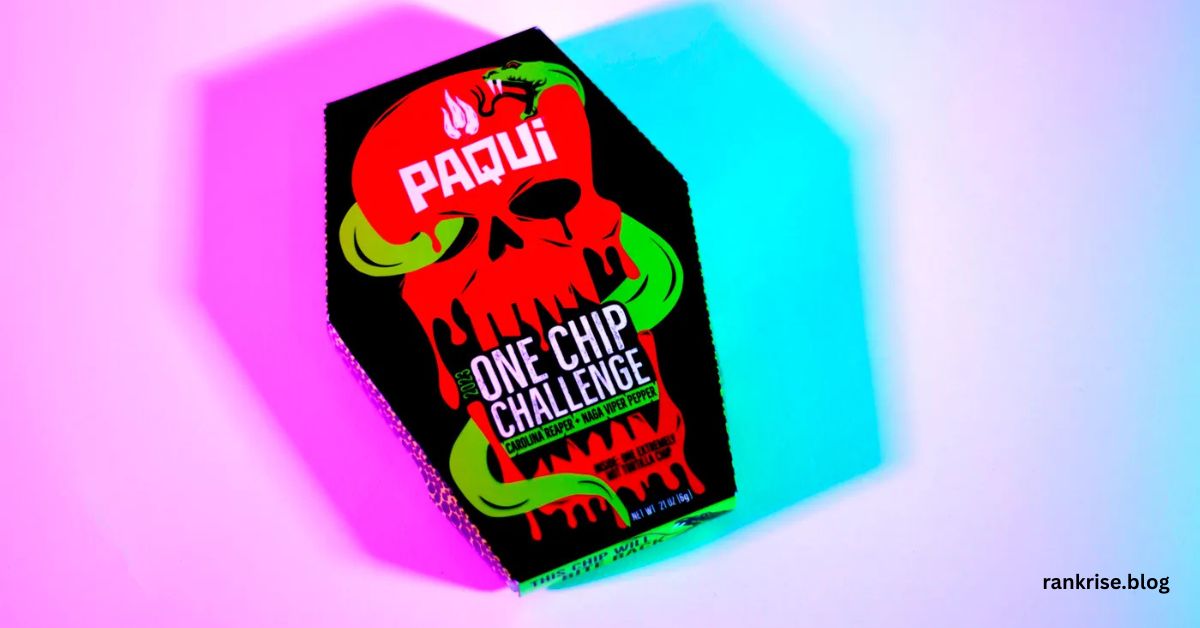The One Chip Challenge – A Dangerous Viral Trend
The One Chip Challenge became a social media sensation, with people daring each other to eat an extremely spicy tortilla chip made with Carolina Reaper and Naga Viper peppers. This challenge, however, took a tragic turn when 14-year-old Harris Wolobah from Worcester, Massachusetts, died shortly after consuming the chip. The One Chip Challenge Death Autopsy revealed shocking details about the potential dangers of consuming such high levels of capsaicin. His untimely passing has raised concerns about the health risks of consuming high levels of capsaicin, especially for individuals with underlying conditions.
What Happened to Harris Wolobah?
Harris Wolobah, a seemingly healthy teenager, participated in the One Chip Challenge in September 2023. Shortly after eating the chip, he began experiencing severe symptoms, including extreme stomach pain and distress. The One Chip Challenge Death Autopsy later confirmed that his condition worsened rapidly. Hours later, he collapsed and was rushed to the hospital, where he was pronounced dead. His tragic death left many questioning whether the One Chip Challenge was safe and what went wrong in his case.
Shocking Autopsy Findings: The Cause of Death
An official One Chip Challenge Death Autopsy confirmed that Harris Wolobah’s death was due to cardiopulmonary arrest, which means his heart and lungs failed. The medical report revealed he had an enlarged heart and a congenital heart defect, conditions that may have made him more vulnerable to the intense effects of capsaicin, the active component in the chip. The high concentration of this chemical, as identified in the One Chip Challenge Death Autopsy, likely triggered a fatal reaction, leading to his death.
The Dangers of Consuming High Capsaicin Levels
Capsaicin is the compound responsible for the heat in chili peppers. While it is safe in small amounts, consuming it in excessive quantities can cause severe health issues, including:
- Intense stomach pain
- Vomiting and nausea
- Breathing difficulties
- Increased heart rate
- Potential for heart complications, especially in individuals with pre-existing conditions
In extreme cases, capsaicin overload can cause toxic reactions, as seen in Harris Wolobah’s case. The One Chip Challenge Death Autopsy findings have sparked serious discussions about regulating spicy food challenges and warning consumers of potential risks.
Paqui’s Response and the Discontinuation of the Challenge
Following the tragic incident, Paqui, the company behind the One Chip Challenge, decided to discontinue the product and pull it from store shelves. The One Chip Challenge Death Autopsy played a key role in raising awareness about the dangers of such extreme challenges. The company issued a statement expressing condolences to Harris Wolobah’s family and emphasized that the challenge was never intended for children or individuals with health concerns. Despite this, the incident raised awareness about the need for stricter guidelines on food challenges promoted on social media.
Legal and Health Implications of the One Chip Challenge
Harris Wolobah’s death has led to discussions about potential legal actions against food manufacturers promoting extreme challenges. The One Chip Challenge Death Autopsy findings have intensified concerns regarding the safety of high-capsaicin products. Health professionals and food safety experts are calling for increased regulation of high-capsaicin products, warning that these challenges can lead to severe medical emergencies. Parents are also being urged to educate their children on the risks of participating in dangerous social media trends.
How Social Media Trends Influence Risky Behavior
Social media plays a crucial role in promoting viral challenges like the One Chip Challenge. Many young individuals are influenced by peer pressure and the desire for online recognition. The One Chip Challenge Death Autopsy has highlighted the real dangers behind such trends, emphasizing the need for responsible content consumption. Experts suggest that parents and educators should engage in discussions about the risks associated with social media trends and encourage critical thinking before participating in such challenges.
The Role of Food Safety Regulations in Preventing Future Incidents
The One Chip Challenge Death Autopsy has reignited discussions about food safety regulations. With the rise of extreme food challenges, regulatory bodies may need to impose stricter guidelines on food products containing dangerously high levels of capsaicin. Clear labeling, health warnings, and age restrictions could help prevent similar tragedies in the future. The incident has prompted authorities to review whether companies should be held accountable for marketing potentially hazardous products without sufficient consumer warnings.
Lessons Learned: Why Extreme Food Challenges Can Be Risky
The One Chip Challenge was meant to be a fun and daring test of spice tolerance, but the consequences proved to be deadly for some participants. The One Chip Challenge Death Autopsy serves as a wake-up call, highlighting the importance of:
- Understanding individual health conditions before trying extreme foods
- Spreading awareness about the dangers of viral challenges
- Encouraging responsible marketing by food companies
Conclusion: Awareness Can Save Lives
The death of Harris Wolobah is a heartbreaking reminder that viral food challenges are not always safe. The One Chip Challenge Death Autopsy findings have highlighted the risks associated with consuming excessive capsaicin. While spicy food lovers may enjoy testing their limits, it’s essential to be aware of the potential health risks involved. This tragic incident should encourage both individuals and companies to take food safety more seriously and prioritize consumer well-being over social media trends.
FAQs About the One Chip Challenge Death
Is the One Chip Challenge still available?
No, Paqui has officially discontinued the product following health concerns and the tragic death of Harris Wolobah. The One Chip Challenge Death Autopsy was a major factor in this decision.
What are the symptoms of capsaicin overdose?
Symptoms include severe stomach pain, vomiting, breathing difficulties, and in rare cases, heart complications. The One Chip Challenge Death Autopsy reported severe symptoms in Harris Wolobah’s case.
Who should avoid the One Chip Challenge?
Anyone with heart conditions, stomach sensitivities, or respiratory issues should avoid consuming high-capsaicin foods. The One Chip Challenge Death Autopsy showed that pre-existing health conditions can make such challenges even more dangerous.
Can spicy foods be fatal?
While rare, excessive capsaicin consumption can lead to severe health complications, especially for individuals with pre-existing conditions. The One Chip Challenge Death Autopsy has raised awareness about the potential fatal consequences of extreme spice consumption.
What should I do if I experience extreme symptoms after eating spicy food?
Seek medical attention immediately if you experience intense pain, breathing difficulties, or an irregular heart rate after consuming spicy food. The One Chip Challenge Death Autopsy has emphasized the importance of immediate medical intervention in such cases.
one chip challenge death autopsy



